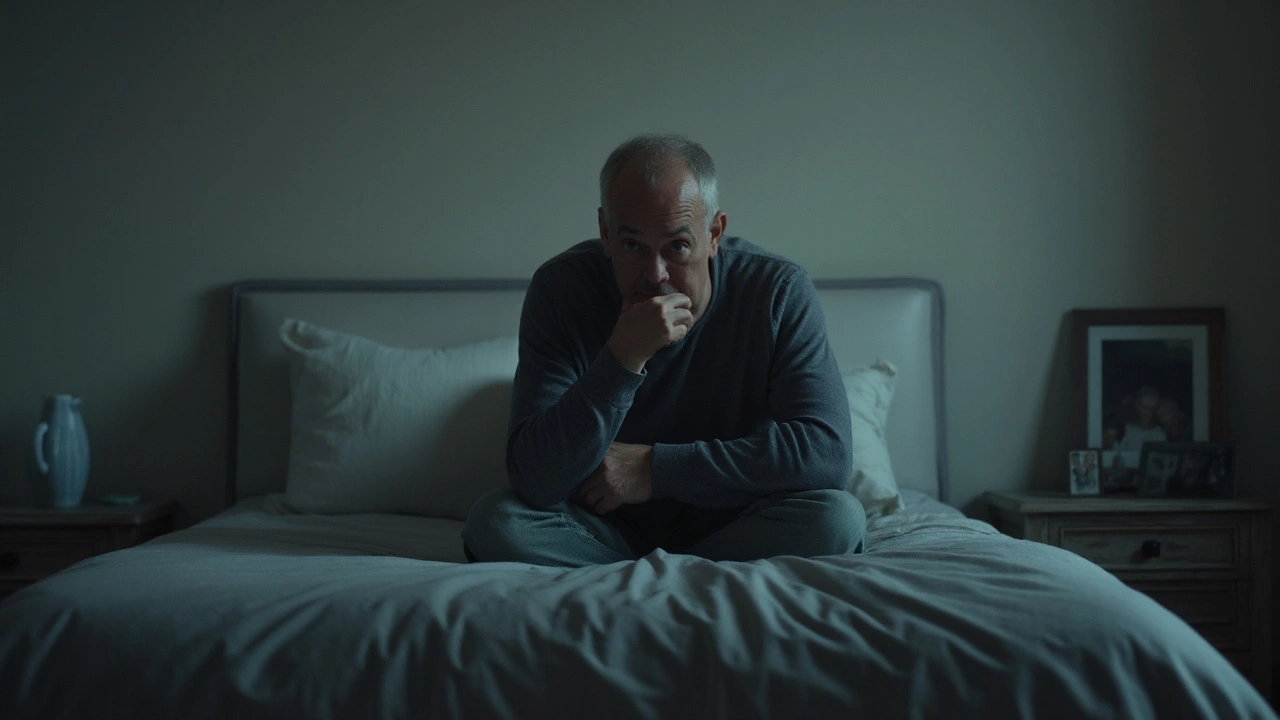Depression Symptoms: What to Look For
Feeling down now and then is normal, but when low mood sticks around and starts messing with daily life, it could be depression. Knowing the signs helps you act before things get worse.
Physical and Emotional Signs
Depression shows up in many ways. You might notice a constant sadness or emptiness that doesn’t lift, even after good news. Irritability or sudden anger can also be a red flag – it’s the brain’s way of coping with overwhelming stress.
Changes in sleep are classic. Some people can’t fall asleep or wake up early and can’t get back to sleep. Others sleep a lot and still feel exhausted. Either pattern signals a problem.
Appetite shifts are common too. You could lose interest in food and drop weight, or you might eat more for comfort and gain weight. Pay attention if your eating habits suddenly change without a clear reason.
Energy levels often dip. Simple tasks like getting out of bed or showering can feel like climbing a mountain. This fatigue isn’t just physical; it drains motivation and makes it hard to start anything.
Concentration suffers. You might find it tough to focus on work, read a page, or remember appointments. Forgetting things you usually handle easily can be a warning sign.
Feelings of guilt or worthlessness creep in. You may replay past mistakes, blame yourself for things out of your control, or think you’re a burden. These thoughts can become a constant inner critic.
Lastly, thoughts of death or suicide are serious. Even fleeting ideas about not wanting to be alive deserve immediate attention. Talk to a trusted person or professional right away.
When to Reach Out for Help
If you notice several of these symptoms lasting more than two weeks, it’s time to consider professional help. You don’t have to wait for a crisis; early intervention often leads to faster recovery.
Start by talking to a friend, family member, or counselor you trust. Simply saying, “I’ve been feeling really low,” can open the door to support.
Contact a mental‑health provider – a therapist, psychiatrist, or your primary doctor. They can assess your situation, discuss treatment options, and guide you through medication or therapy if needed.
Many communities offer free or low‑cost helplines. If you ever feel unsafe with thoughts of self‑harm, pick up the phone and call emergency services or a suicide hotline right away.
Remember, depression is a medical condition, not a personal flaw. Treating it is like treating any other illness – with care, patience, and professional guidance.
By spotting symptoms early and reaching out, you give yourself the best chance to feel better. You deserve relief, and help is available – you’re not alone in this journey.

11
Sep
Recognizing and Addressing Symptoms of Depression in Men: Breaking the Stigma
Depression in men often manifests differently than in women, and societal expectations can make it difficult for men to seek help. This article explores the symptoms specific to men, challenges social stigma, and offers practical tips for recognizing and addressing these issues. By understanding the unique ways in which depression affects men, we can better support those who are struggling.